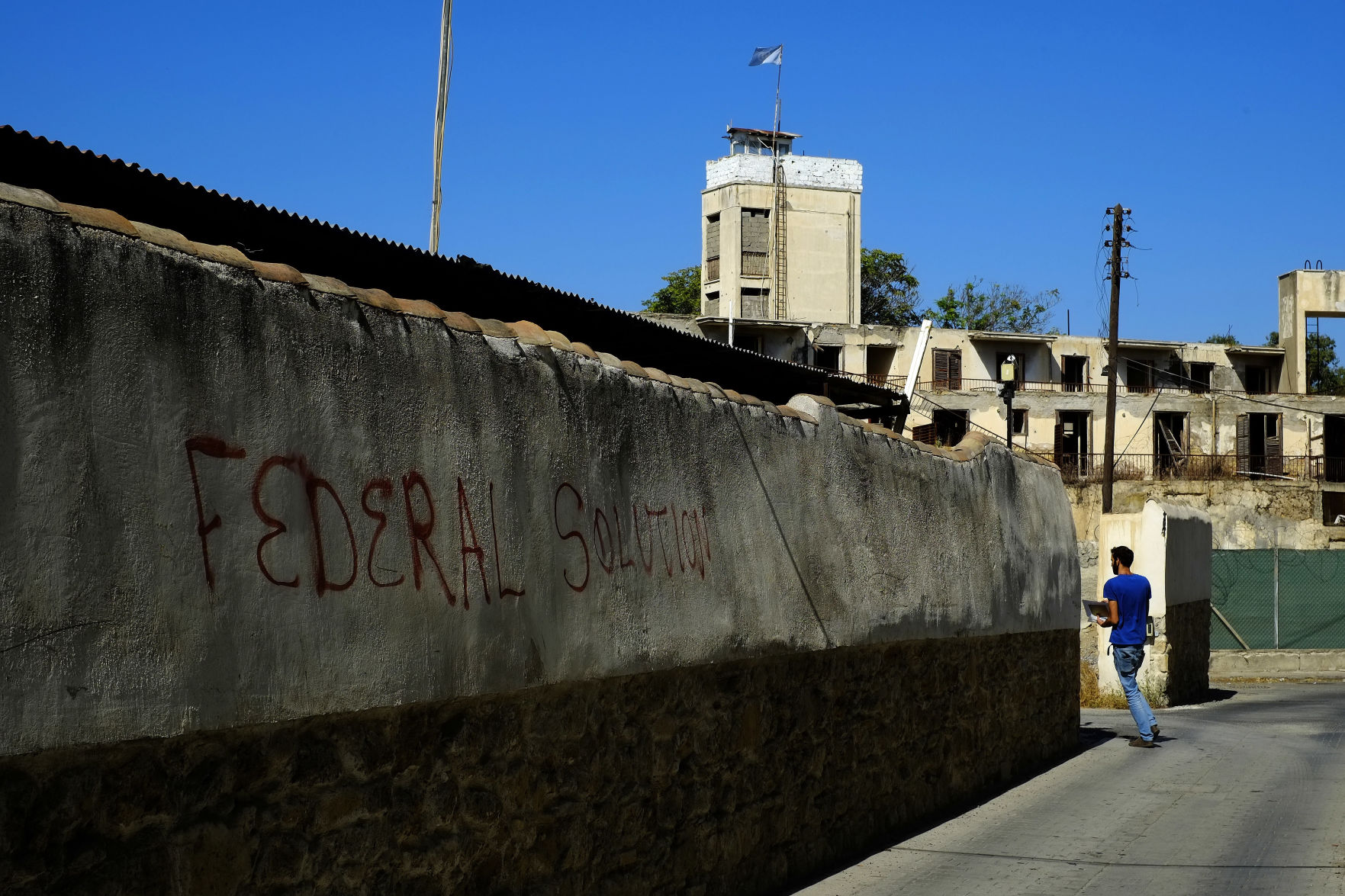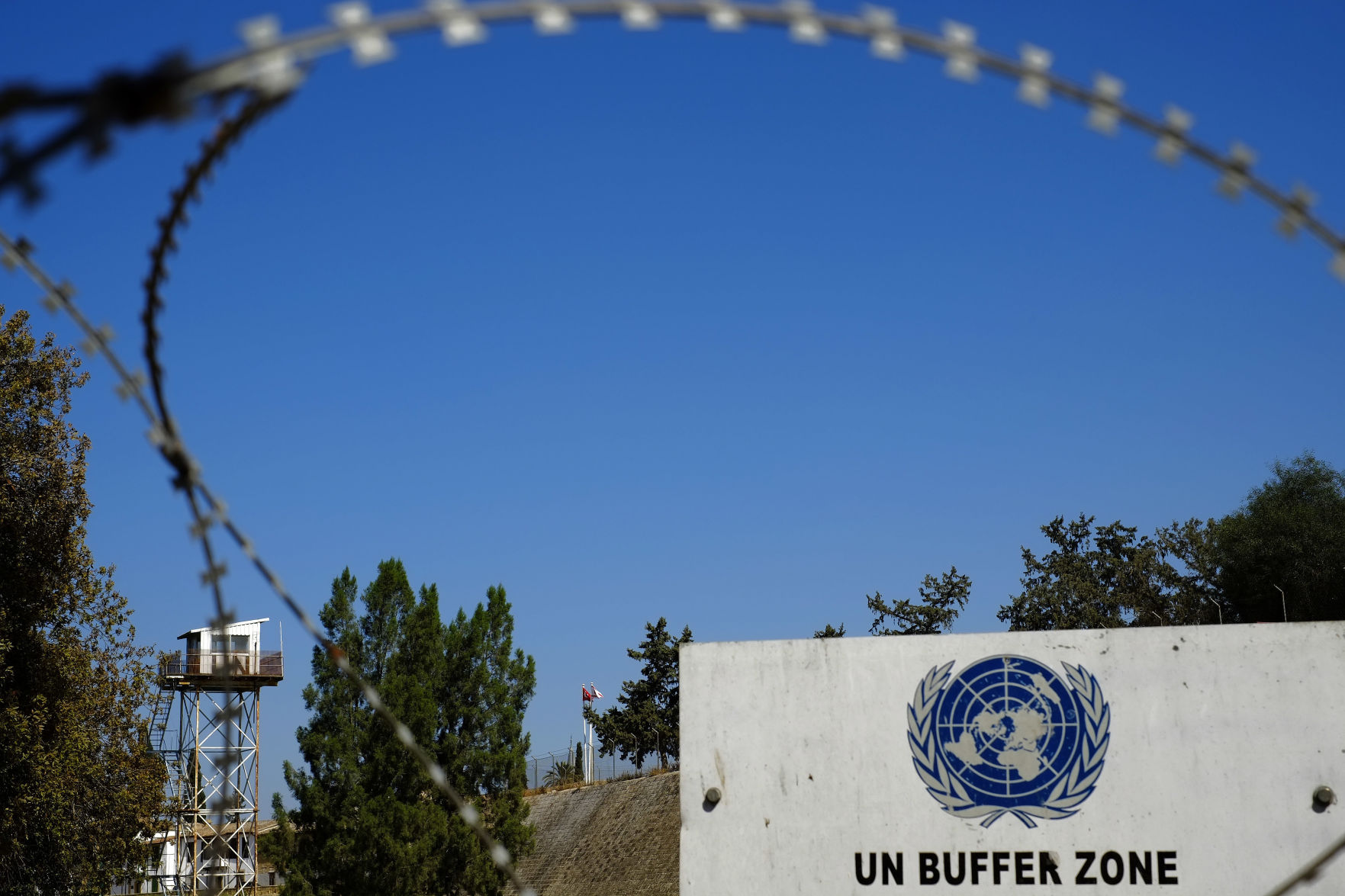NICOSIA, Cyprus (AP) — The United Nations Peace Keeping Force in Cyprus (UNFICYP) said Wednesday that it regrets a decision by Turkish Cypriot authorities to start imposing taxes and fees on humanitarian goods delivered to Greek Cypriots in the breakaway
NICOSIA, Cyprus (AP) — The United Nations Peace Keeping Force in Cyprus (UNFICYP) said Wednesday that it regrets a decision by Turkish Cypriot authorities to start imposing taxes and fees on humanitarian goods delivered to Greek Cypriots in the breakaway north of the ethnically split island.
UNFICYP said that Wednesday’s aid delivery to Greek Cypriots in the remote Karpas Peninsula on the island’s northeastern tip was limited to medical supplies because of the Turkish Cypriot decision, which it called an “unfortunate development.”
The UN force said its weekly deliveries of humanitarian assistance to Greek Cypriots and Maronites in the north over the past 40 years have been based on a longstanding agreement.
Some 400 Greek Cypriots and Maronites — many of whom are elderly — live in the north and have been receiving food, medical supplies and cleaning agents on a weekly or bi-weekly basis.
They remained after a population exchange in the aftermath of a 1974 Turkish invasion that was triggered by a coup of supporters of union with Greece.
The invasion left the island split into a breakaway Turkish Cypriot north and an internationally recognized Greek Cypriot south. A 1983 Turkish Cypriot declaration of independence is recognized only by Turkey, which keeps over 35,000 troops in the north.
Nicos Anastasiades, the island’s Greek Cypriot president, decried the decision as “completely illegal” and against existing agreements.
“These measures, unfortunately, are poisoning the positive climate we’re trying to foster,” Anastasiades said, adding that the Cypriot government would not pay taxes to an “illegal regime.”
A Turkish Cypriot foreign ministry statement said the new taxes don’t violate any agreement. It accused the Cyprus government of long “exploiting politically” the presence of Greek Cypriots in the north as an “enclave living in occupied territories” even if they’re free to come and go as they please.
Mustafa Akinci, the Turkish Cypriot elected leader who does not have executive power but heads the peace talks, said that he disagreed with the tax decision. Akinci said he failed to convince the government not to go ahead with the move, saying it doesn’t help improve peace prospects.
Turkish Cypriots lifted severe restrictions on north-south crossings in 2003 when several crossing points opened across a U.N. controlled buffer zone.
The move comes nearly three months after high-level talks to reunify the island collapsed.



